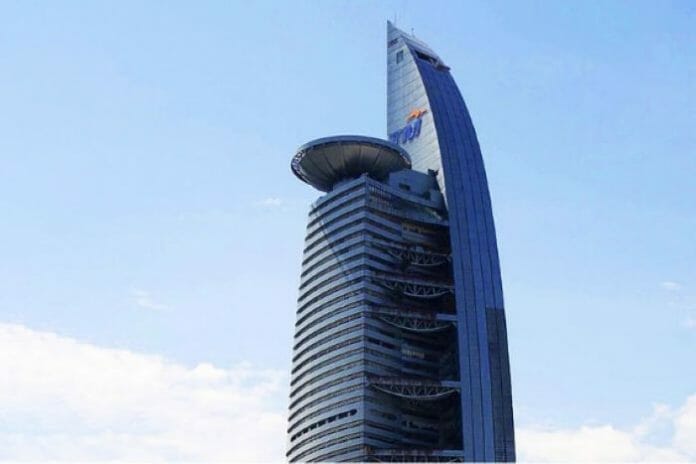Telekom Malaysia Bhd (TM) is putting its best foot forward for 5G as its 4G offerings had failed to capture the market and compete with its peers, according to Kenanga Research.
Kenanga said it came away from meeting with TM feeling encouraged of its 5G thrust as it believes that TM’s 5G services have significantly improved over its previous 4G offerings due to better network quality.
“Whilst we do not expect Unifi Mobile to be an earnings driver, we believe it enhances TM’s convergence proposition and customer retention, the research house said in its Company Update today (Jan 10).
It maintains its OUTPERFORM call, forecasts and TP of RM6.76, based on 5.5x FY24F enterprise value to earnings before interest, taxes, depreciation, and amortization ratio (EV/EBITDA).
“(Our forecasts) remain sanguine as structural data trends remain intact and there is no adjustment to our TP based on ESG given a 3-star rating as appraised by us,” it said.
Kenanga noted following its previous muted attempt to penetrate the 4G mobile space, TM believes it has a better chance moving forward with 5G, given the improved network quality and effective product marketing.
“Its 4G was a wash out. TM ventured into the mobile space in 2014 via the acquisition of Packet One Networks (Malaysia) Sdn Bhd (P1).
“This enabled TM to offer converged services via P1’s 4G LTE network and mobile spectrum (20MHz block within 2.6GHz band). TM’s mobile service was launched as webe in Sept 2016 and subsequently rebranded as Unifi Mobile,” it said.
The research house said that unfortunately, Unifi Mobile had limited traction in attracting new 4G subscribers.
“TM attributes this to insufficient spectrum holdings (850MHz and 2.6GHz spectrums for transmission of 4G LTE) that led to weak network quality, and lack of experience in marketing mobile services compared to competitors such as Celcom, Digi and Maxis.
“Therefore, in 2019, as a counter measure, TM entered into a 3-year network sharing agreement with Celcom for 4G domestic roaming and MOCN (Multi-Operator Core Network) services.
“In spite of this, Unifi Mobile’s network quality remained inadequate, according to TM,” it said.
For 5G, Kenanga said Unifi Mobile will no longer be handicapped by deficient spectrum resources as all the mobile players will likely to procure wholesale 5G capacity from a single universal player, Digital Nasional Berhad (DNB), over the next few years.
“TM will also have the options between 2 wholesale providers. This implies a relatively level 5G landscape that enables TM to compete effectively.
“On top of that, in Jun 2023, TM switched to Maxis (from Celcom) to supply 4G MOCN, 4G and 2G Domestic Roaming services. Arising from this, Unifi Mobile now has 95% population coverage for 4G services.
“According to TM, the change in infrastructure supplier led to a significant improvement in its network quality. Furthermore, Unifi Mobile’s renewed efforts to aggressively pursue market share is boosted by the appointment of its new CEO, Jasmine Lee in Oct 2022.
“During her stint as Chief Digital Officer and Chief Marketing Officer at U Mobile, its subscriber base expanded 7-fold from 1million in 2013 to 7 million in 2021,” it added.
It also believed that TM 5G products is more compelling than 4G and it has recently ranked in OpenSignal’s Sept 2023 and secure five other joint wins for 5G products, such as in 5G live video, 5G download speed category.
“Moreover, Unifi Mobile’s current postpaid plans are reasonably priced so that it does not compete with its larger established competitors. Monthly fees for its postpaid packages range between RM39-RM99, which mirrors UMobile’s pricing rather than big players such as Maxis, Celcom and Digi, which range higher from RM60-RM139.
“Therefore, we anticipate relatively encouraging response for Unifi Mobile’s new UNI5G products (that currently provides RM10 monthly rebate for Unifi Home fixed broadband bill.
“Hence, this boosts TM’s convergence proposition, cross selling opportunities, and retention of its fixed broadband customer base.”
It added TM may monetize its 5G offerings for enterprise and public sector customers, as 5G access capacity payment of RM288m per annum to DNB is a financial drag to small 5G players like Unifi mobile.
TM One recently implemented Petronas’ private 5G network at Sg Udang Regassification Terminal, for example.
“One the back of this, we believe that TM is able to leverage on 5G and big data trends over the longer term. This is backed by its track record with government-linked companies and agencies that have the financial muscle to invest in 5G.
“Moreover, TM’s 5G access payments are also partially offset by its 10-year RM2b fiber leasing service contract with DNB.”
The risks to Kenanga’s call include higher-than-expected erosion in wholesale revenues, pricing pressures at the retail segment arising from policy-led directives, and irrational competition in the retail fiber broadband space.









